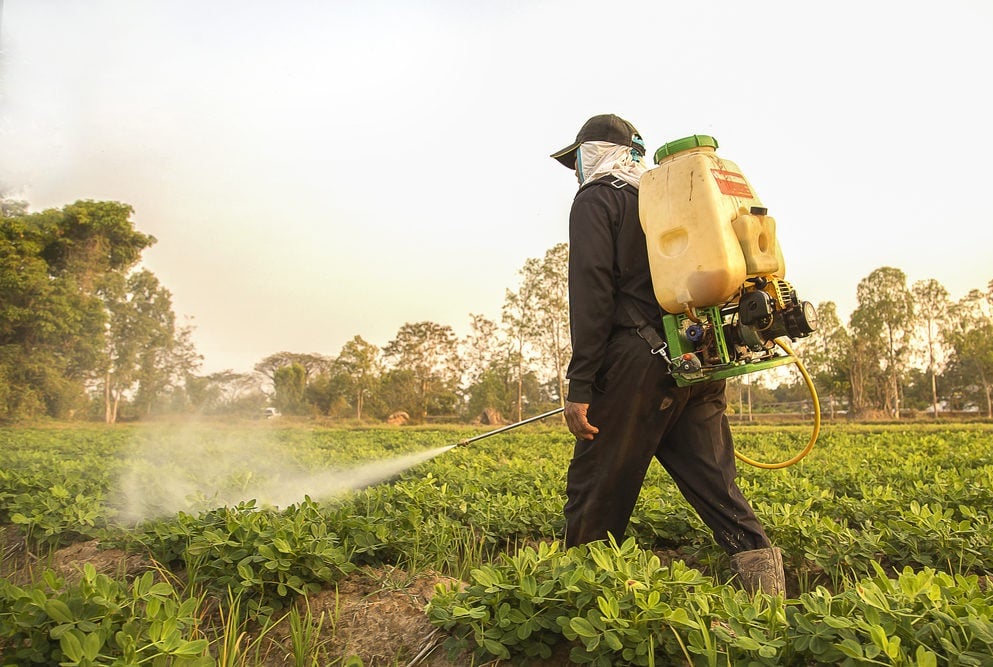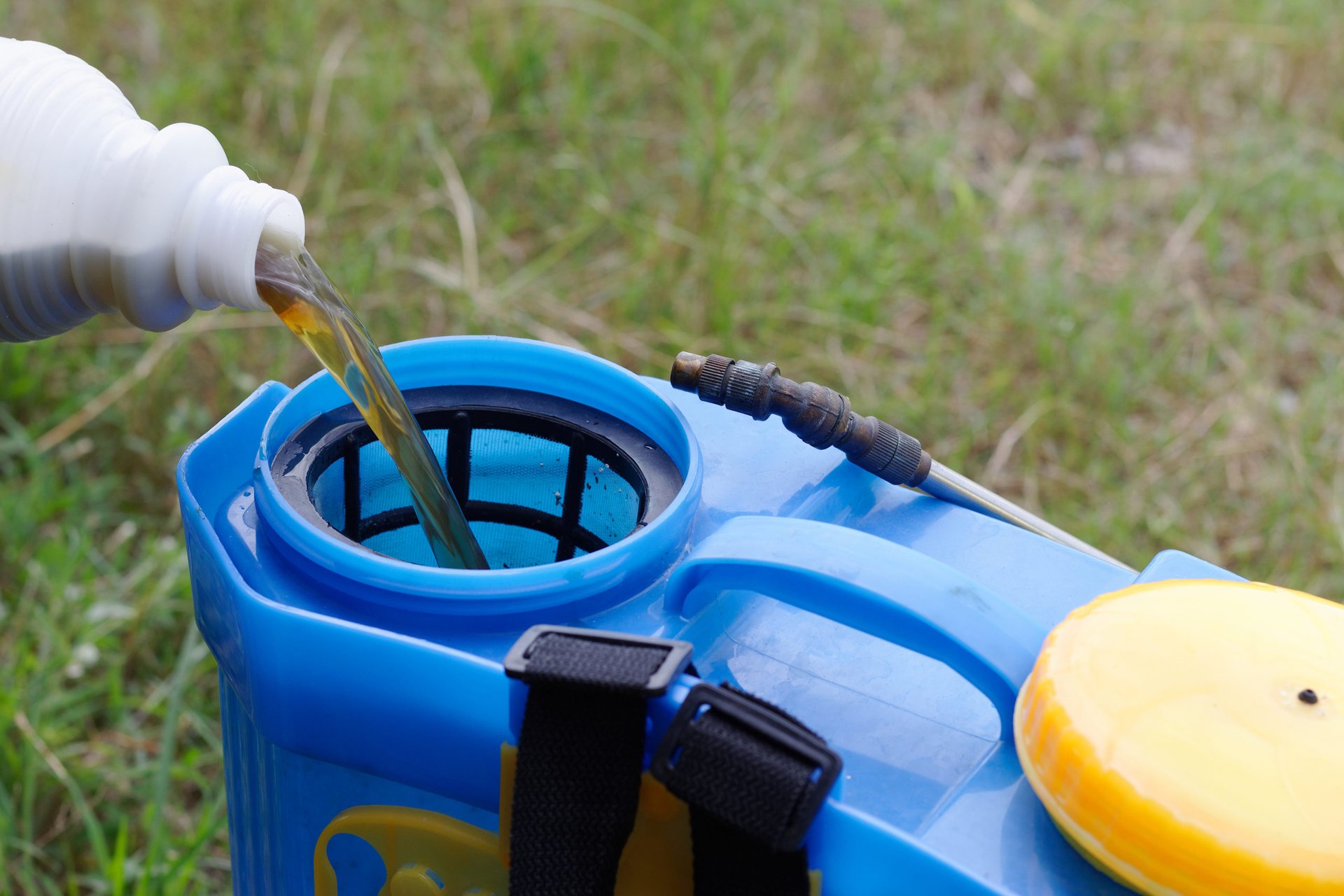June 16, 2025 | 14:17 GMT +7
June 16, 2025 | 14:17 GMT +7
Hotline: 0913.378.918
June 16, 2025 | 14:17 GMT +7
Hotline: 0913.378.918
A paraquat lawsuit claims that long-term exposure to paraquat, a popular herbicide, causes Parkinson’s disease. Plaintiffs diagnosed with Parkinson’s disease say manufacturers failed to warn about the risk. Farmers, agricultural workers, and others are suing manufacturers for compensation.
As of March 16, 2023, there were 2,998 paraquat lawsuits consolidated in Illinois federal court. The first bellwether trial was scheduled for July 2023 but has since been moved to October 2023.

Paraquat is a restricted-use herbicide. This means only licensed, trained applicators can use it, and it’s not licensed for home use.
The majority of paraquat claims are in the Illinois MDL, but another large group of paraquat lawsuits formed in the Philadelphia Court of Common Pleas. A judge signed an order on March 31, 2023, allowing cases to proceed with a short-form complaint.
“Lawsuits have been filed in the state courts of California, Florida, Pennsylvania, and Washington. The first state court trial is scheduled to begin on Sept. 5, 2023, in California. An additional state court trial is scheduled to begin Jan. 8, 2024, in Florida,” according to Syngenta’s 2022 annual report.
Ellen Relkin, partner at Weitz & Luxenberg the nationwide law firm, based in California shared that people who worked around paraquat or were exposed to paraquat regularly and later developed Parkinson’s disease may be eligible to file a paraquat lawsuit for compensation.
Most people exposed to paraquat work in commercial agriculture or live near commercial farms. Paraquat is a restricted-use herbicide. This means only licensed, trained applicators can use it, and it’s not licensed for home use.
In addition, those who live near farms may be exposed to spray drift or contaminated water. People who live with licensed applicators may be exposed through contaminated clothing or equipment and by accompanying applicators to work sites.
People who may qualify to file paraquat lawsuits include: agricultural workers, including farmers, licensed paraquat applicators, growers, pickers and landscapers, people who live near farmland sprayed with paraquat, anyone who works around commercial weed killers and pesticides, contacting a paraquat lawyer is the only way to be sure you qualify.
Most people who filed paraquat lawsuits said the weed killer led them to develop Parkinson’s disease, but some lawsuits include other injuries, such as kidney disease. Some of the earliest lawsuits were filed in 2016, according to Syngenta’s 2018 Financial Report.

Paraquat, also known as Gramoxone, is a widely used commercial herbicide that is highly effective at killing weeds and grasses.
As the number of lawsuits continued to grow, the plaintiff’s lawyers petitioned the Judicial Panel on Multidistrict Litigation to consolidate lawsuits before one federal court. These paraquat class-action suits and individual injury claims are now consolidated in Illinois federal court.
In most cases, plaintiffs worked with paraquat for many years before receiving a Parkinson’s disease diagnosis. Some paraquat lawsuits are part of a paraquat class-action suit, while others are individual injury lawsuits.
Some experts think an average paraquat settlement amount could be between $100,000 and $500,000, depending on the severity of injuries. But this is just an estimate. The outcome of the first trial in October 2023 will provide more information for potential case values.
In June 2021, Syngenta and another defendant reached a settlement agreement with a few paraquat claimants for $187.5 million, according to Syngenta’s 2022 annual report. There haven’t been any other court-approved settlements since then.
Paraquat is not banned in the United States, but the U.S. Environmental Protection Agency has restricted its use to licensed applicators. Because of its toxicity, some lawmakers and activists have fought to get it banned. So far, legislation to ban paraquat hasn’t been successful.
After reviewing more than 70 articles on paraquat exposure, the EPA concluded “there is insufficient evidence to link registered paraquat products to any of the health outcomes investigated, including Parkinson’s disease, when used according to the label.”
As per Drugwatch, Paraquat, also known as Gramoxone, is a widely used commercial herbicide that is highly effective at killing weeds and grasses. It’s especially used to kill plants that are resistant to Roundup and its main ingredient glyphosate. Paraquat is sold in concentrated form and is mixed with water and sprayed on crops.
About 377 companies manufacture paraquat products worldwide. Syngenta’s product Gramoxone is one of the most well-known brands in the United States.

About 377 companies manufacture paraquat products worldwide.
Paraquat is highly toxic and can cause short-term and long-term health effects, some of which may be fatal. Research also links long-term paraquat exposure to Parkinson’s disease, an incurable nervous system disorder that affects movement and communication.
Since 1964, American commercial farmers and other agricultural employees have used paraquat to control invasive vegetation and grasses. It is sprayed on commercial crops such as maize, soy, and cotton by applicators.
According to the United States Environmental Protection Agency, a single drink of paraquat is lethal. Due to its toxicity, the EPA restricts the herbicide's commercial use to licensed applicators. There are no licensed paraquat products for domestic use.
People who are licensed paraquat applicators are at the greatest risk for exposure, but anyone who works in areas where paraquat is used may be exposed. This includes groundskeepers, farmers, growers, pickers and other agricultural workers.
All brands of paraquat marketed in the United States contain dyes, sharp odors and chemicals that help prevent people from accidentally drinking the weed killer. Paraquat products also include an agent that induces vomiting.
Symptoms of paraquat exposure vary depending on the amount of exposure and how someone was exposed. For example, ingesting a large amount of paraquat causes acute poisoning and symptoms appear quickly. Licensed applicators and other agricultural workers exposed to smaller amounts of the chemical over a long period may not manifest symptoms for years.
The same properties that make paraquat toxic to plants and animals are what cause Parkinson’s disease in humans, according to studies cited in each Parkinson’s disease paraquat lawsuit. Scientists think Parkinson’s disease is caused by the death of neurons that produce dopamine in the brain.

The scientific link to Parkinson’s disease has led several people to file paraquat lawsuits against herbicide manufacturers.
Studies have shown paraquat creates oxidative stress that kills dopamine-producing neurons. The scientific community has known about paraquat’s oxidative stress qualities since the 1960s, according to lawsuits.
Several studies link long-term paraquat exposure to developing Parkinson’s disease. These studies propose that paraquat creates oxidative stress that damages and kills neurons that produce dopamine, increasing the risk of the disease.
Parkinson’s disease is an incurable brain disorder. Researchers theorize the loss of neurons that produce dopamine may cause the condition to develop.
The scientific link to Parkinson’s disease has led several people to file paraquat lawsuits against herbicide manufacturers, including Syngenta. Lawsuits claim paraquat is defective and led farmers to develop Parkinson’s disease. Plaintiffs say that manufacturers failed to warn the public about the risk.

(VAN) The working delegation from the Ministry of Agriculture and Environment conducted an important trip to the Netherlands to strengthen strategic partnerships and sustainable development in the agricultural sector.

(VAN) The letter ‘A Plea from the Ocean’ not only evokes emotion but also awakens the human conscience to the responsibility of protecting life on Earth.

(VAN) The Department of Agriculture in South Africa has announced the country’s first mass vaccination of poultry to prevent local birds from contracting avian influenza.

(VAN) Establishment of the Mekong Delta Regional Agricultural Linkage Center, aiming for a closed value chain, deep processing, trading platforms, and international market connectivity.

(VAN) Gia Lai province has recently recorded 460 rare species of animals and plants, contributing to forest conservation and biodiversity planning in the region.

(VAN) Ms. Caroline Beresford, New Zealand Ambassador to Vietnam, expressed confidence that agricultural cooperation between Vietnam and New Zealand will develop sustainably, be climate-resilient, and promote gender equality.

(VAN) Vietnam reaffirms its commitment to international cooperation in fostering sustainable and responsible fisheries while ensuring resilient livelihoods for small-scale fishing communities.